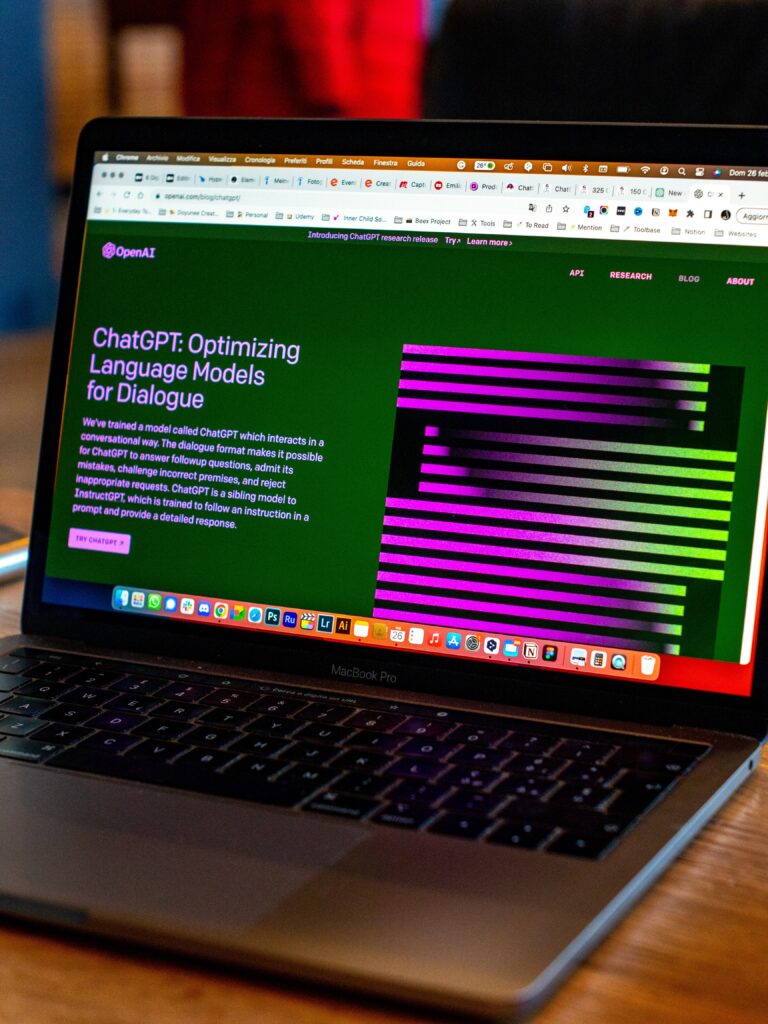While every corner of the marketing universe is currently wrestling with speculation on how machine learning and generative AI will change industry norms, how we use data and the creative process – the podcast industry is no exception. Both machine learning and generative AI have the potential to impact everyone along the supply chain – from hosts and producers to networks to advertisers to agencies and technology providers. And as with most truly disruptive innovations, the implications on the podcast industry will likely be a mix of good and bad – but some will also be downright boring.
The Good
Most people agree that one of the most beneficial aspects of AI is its ability to increase efficiency and accuracy through targeting and automated content generation. By streamlining or reducing monotonous tasks, AI can actually make people’s jobs more enjoyable, prevent burnout and eliminate simple mistakes that can have big consequences. Here is Ad Results Media’s take on some of the best implications of AI on the podcast industry.
Targeted & Personalized Host-Read Ads
Podcast media sellers like Spotify have started to experiment with using generative AI to clone a host’s voice to make highly personalized or geo-targeted ad variations at scale. This has the potential to save podcast hosts massive amounts of time and provide advertisers with a host-read ad format that has the potential to have almost infinite iterations. Some top hosts are already onboard!
According to statements made by The Ringer founder Bill Simmons on an episode of The Bill Simmons Podcast, he says, “There is going to be a way to use my voice for the ads. You have to obviously give the approval for the voice, but it opens up, from an advertising standpoint, all these different great possibilities for you.”
These AI generated host-read ads can also be produced in multiple different languages without the host needing to learn proper pronunciation or get the scripts translated.
Solving for Cross-channel Attribution
Podcast measurement companies are using machine learning to begin to get much closer to true multi-touch attribution of podcast advertising campaigns. Some of these companies are already looking at a multitude of data signals from the initial impression to the final conversion. These signals can include: IP address, user agent, time, device, geo, etc. One provider we spoke with, ArtsAI, says that “when the machine learning has 95% or higher confidence that the impression drove the conversion, we attribute”.
Creative Measurement Simplified
With the help of AI, we can learn more about what impacts creative performance with every campaign we run. A platform like Veritronic leverages millions of data points to understand any type of audio and isolates its critical elements in its analysis - emotions, recall, intent, and engagement. AI then uses this data to improve and evolve its audio knowledge base while generating new data-based insights into how different audio elements resonate with diverse audiences. This takes a virtually impossible manual task and transforms it into an actionable plan to optimize your creative.
Easy AI Transcription
For all the hosts and producers out there doing their own transcriptions, generative AI can not only be used to quickly create the transcriptions to be used on their show’s page – but they can use the likes of ChatGPT and Jasper AI to then create an accompanying blog post in seconds. The tedious and manual process of creating transcripts and other long-form content can be made easy and accurate with AI.
Research in Seconds
Generative AI tools crawl the web for information to build their models and are therefore excellent research assistants. Producers will be able to research podcast guests in seconds and advertisers and agencies will be able to research podcast hosts and shows for consideration in the same amount of time. For example, you can ask an AI tool to provide an in-depth background or vetting document on a specific host or guest. Generative AI can also be used to do research on past competitive product mentions, what was said and on which platforms. Something that could take a very skilled media planner many hours to assemble manually.
Brand Safety in a Snap
Not only can AI help you research talent and hosts in seconds, but it can also automate the results of a brand safety audit episode by episode. Platforms such as Barometer and Sounder, go beyond simple keyword detection or frame by frame analysis by using an innovative contextual and tonal analysis process that leverages state of the art, proprietary algorithms that has been trained for over two years on hundreds of thousands of episodes and millions of hours of content.
The Bad
Since most of us have seen the movie The Terminator and know how well that turned out - we knew it all couldn’t be good. Now for our take on the potential bad implications of generative AI.
Listener Skepticism
The trust that the audience has for the podcast host is what makes for advertising gold. Consumers are most likely to consider brands they hear about on podcasts than any other channel – including online video, social media, TV or AM/FM radio* - because they trust and respect the host. If host-read ads are now created using generative AI, listeners will likely get tired of hearing the slightly robotic version of their favorite host’s voice and ad effectiveness will decline.
Deepfakes
According to Webster’s Dictionary, a deepfake is “a video of a person in which their face or body has been digitally altered so that they appear to be someone else, typically used maliciously or to spread false information”.
As the use of video as a companion to podcasts, or even as the primary medium for the podcast itself, are becoming far more popular – the threat of deepfake podcast videos becomes more real. Deepfakes can create a new set of brand safety challenges for advertisers and can sully the reputations of prominent hosts if they fall victim to a malicious deepfake attack.
Deepfakes are enough of a real threat that President Biden just issued an Executive Order on October 30th, 2023 that seeks to lessen the dangers of deepfakes. According to the NYT, “Mr. Biden made it clear that he intended the order to be the first step in a new era of regulation for the United States, as it seeks to put guardrails on a global technology that offers great promise.”
Copyright & Privacy Violations
As so many of the prominent members of the Writer’s Guild of America pointed out, generative AI can use their public body of work to essentially create content or entertainment that they will not get compensated for or have oversight of. Podcasts are exactly that – a very public body of work of the hardworking hosts, producers and writers. The potential for companies to inadvertently infringe on a creator’s IP or privacy is high if they use a generative AI tool that was not built upon an ethical framework.
The Boring
I know you were expecting “The Ugly” as the last category – but honestly, generative AI has real potential to just make podcasts boring.
Robots Talking
The first podcast episode to be fully generated by AI used the cloned voice of Joe Rogan - the world’s most popular podcast host. The podcast, Joe Rogan AI Experience, is a series of AI voice clones of Rogan speaking with fake guests like OpenAI CEO Sam Altman and former president Donald Trump.
Shortly after the first episode came out, the real Joe Rogan took to Twitter to respond with “This is going to get very slippery, kids”. We couldn’t agree more. The popularity that Joe Rogan has achieved with his podcast is due to his incredible ability to relate to his guests, make them comfortable and get them to open up. Robots talking sounds pretty boring to us.
Terrible Scripts
We fully support using generative AI to research guests and show topics – but we really hope that hosts and producers don’t start asking ChatGPT to start writing scripts for them. The organic and personal nature of the conversation that occurs on podcasts between hosts and guests is what makes them so magical.
The team at Ad Results Media is always looking for ways to incorporate the best of new innovations and technologies into our agency and put them to work on behalf of our clients. We believe in the power of AI to improve the industry if used with careful consideration. Reach out to our team today to learn more about how we service our clients.
*Sounds Profitable, The Medium Moves the Message

